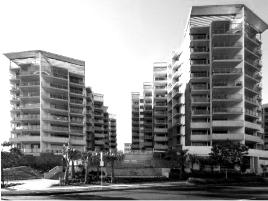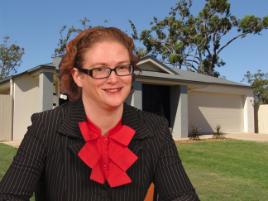The long and the short of it is 'buyer beware' following court decision on residential complex
Published on 06 Jun, 2013
Media Contact: Kirsty Richardson 0400 646 123 or OR Ian Clarkson 0488 775 609 or OR Garrick Small 0413 013 225 orFor Immediate Release
A recent Victorian Supreme Court decision should sound as a warning for those interested in buying into residential complexes where short-term accommodation sits alongside permanent residents in the same block...
The Court recently decided that, from a building code perspective, it is not the length of stay that matters when deciding whether accommodation is being used as a dwelling or being used in a more 'hotel-like' commercial manner that would require more building work, including fire safety measures.
 Click here to View/Download full-sized Image
Click here to View/Download full-sized Image
Dr Kristy Richardson from CQUniversity's Property program says the Building Code of Australia operates nationally so the Court finding has implications in other states..
She says unit buyers should be aware about the mix of tenancy and consider whether issues could arise.
"Indeed, sitting behind the recent court appeal were complaints made by permanent residents about the noise and other issues of the short-term residents in the building. Those complaints were unable to be resolved through body corporate governance mechanisms," she said.
"Inspection of the body corporate by-laws are a necessity to ascertain whether there are any restrictions on the use or the minimum term for which the unit may be rented out.
"On the other hand, if a person is seeking to buy a unit in an apartment complex for investment purposes they need to take care to ensure that the by-laws permit this and that the management of the complex together with any disputes that might arise over any use of the apartment can be effectively dealt with."

Associate Professor Kristy Richardson
Click here to View/Download full-sized Image
Dr Richardson says that the recent case involved a Mr Salter, the owner and manager of some units in a residential tower located at Docklands in Melbourne.
"The local Council gave Mr Salter a building notice indicating that the use of the units as serviced apartments for short-term accommodation contravened the occupancy permit that had been issued for the premises.
"The premises were classified under the Building Code as a Class 2 building meaning that the building contained two or more sole occupancy units each being a separate dwelling. The Council did not consider the units owned by Mr Salter as meeting the definition of ‘dwelling' because those renting the apartment did not have connection with the premises considering the short-term nature of their stay.
"The Council assessed the use of the apartments as a Class 3 or a building which 'is a common place of long-term or transient living'. The Council required Mr Salter to stop accepting short-term accommodation or carry out the building work required to convert the apartment to meet the building requirements of a hotel under the Code.
"Mr Salter appealed the issue of the notices before the Victorian Buildings Appeals Board but was unsuccessful. The Building Appeals Board considered that the nature of the use of the apartment for short-term accommodation meant that the apartment was not being used for residential but commercial purposes so was more akin to hotel-style accommodation.
"Mr Salter then appealed to the Supreme Court of Victoria. The Supreme Court overturned the decision of the Building Appeals Board considering that the short-term use of the apartments did not automatically make the commercial aspect of the apartment hotel-like. The Supreme Court did not regard the short-term stay of people in the unit as relevant to its classification in the sense that just because people stayed on a short-term basis it did not mean that the unit was not a ‘dwelling'. The Court did not regard that the serviced unit use of the unit represented a need to change the building classification from Class 2 to Class 3."
ENDS

